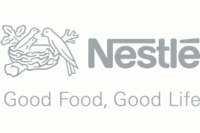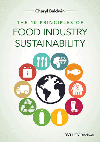Arla and Nestlé top Context's sustainability rankings
Context analyzed and scored the sustainability content on each company’s website and sustainability report across seven strategy and communications criteria.

Photo courtesy of NicoElNino via geetyimages.com.
Arla and Nestlé are leading the way regarding their sustainability approach and communications, according to a recent industry report from Context, a sustainability consultancy based in London and Los Angeles.
The report assesses 10 of the world’s top dairy companies to find out who has the best sustainability story to tell, and how well they’re telling it. Arla and Nestlé topped the ranking with Fonterra and FrieslandCampina following behind.
The report found all assessed companies address some of the key issues associated with dairy farming in their strategies and communications, and most report progress towards their goals. But the level of detail varies dramatically between companies, and some are far more credible than others. Leading companies have approaches and initiatives that cover often-overlooked environmental consequences — such as biodiversity and soil health — with Arla, Danone, Fonterra, and Nestlé providing good examples.
The companies assessed are all implementing members of the Dairy Sustainability Framework, (DSF), a program from the Global Dairy Agenda for Action (GDAA) that aims to connect the dairy sector at a global level and align its sustainability efforts. Members include Arla Foods, Danone, Fonterra, FrieslandCampina, Nestlé and Saputo.
“Sustainability is good for business. Consumers want products that align with their ethics and investors understand how sustainability and financial resilience are interlinked. Companies need a good sustainability story and they must tell it well if they hope to cultivate trust with key stakeholders,” said Helen Fisher, managing director of Context Europe.
Context analyzed and scored the sustainability content on each company’s website and sustainability report across seven strategy and communications criteria. The consultancy assessed whether companies were addressing the main issues associated with dairy farming, including environmental problems such as greenhouse gas emissions, soil health and biodiversity, along with other concerns such as animal care and rural economies.
Context researchers assessed how well the companies tell their sustainability story by looking at their use of multimedia, news articles and social media. "From Arla’s interactive social media posts to Danone’s creative YouTube channel, these companies are making the most of their sustainability storytelling. They use multiple channels and make effective use of videos and infographics to explain their sustainability work," the report stated.
Looking for a reprint of this article?
From high-res PDFs to custom plaques, order your copy today!







